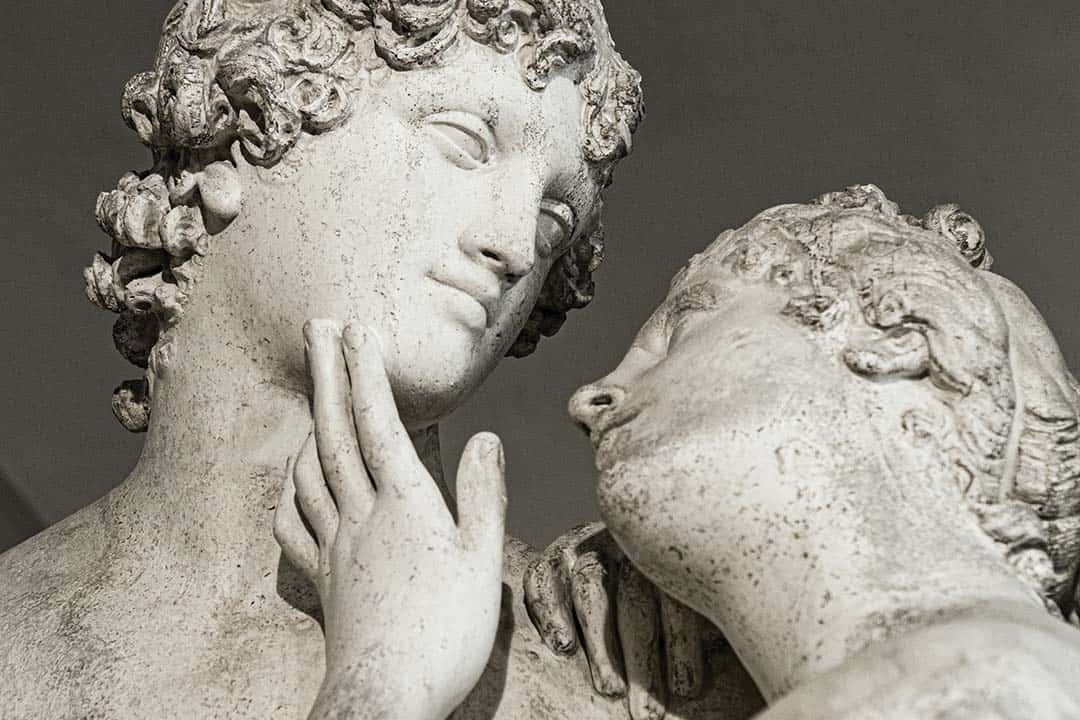The Merriam-Webster dictionary’s first definition of love is a “strong affection for another arising out of kinship or personal ties.” From my vast internet search of “define love,” it seems that the definition of the word has never been more subjective and ambiguous than it is now. But, this shouldn’t be surprising. After all, ‘love’ is in the eye of the beholder.
Given the many diverse takes on love, The Varsity asked three writers to define what love is to them.
Love cannot be defined
I have been tasked with defining the word love, and I can tell you right now that I failed. It is an impossible task. A strong emotion like love cannot be defined. Love is an endless feeling that overwhelms our beings, consumes our present, and controls our future. As we all fade into oblivion, love remains. It is one of the only things that remain timeless and immortal.
Love is a shapeshifter. It is both a hoax and a truth. It is unconditional at its best, and impossible at its worst. When you have love, you float up in the sky, weightless. When you do not have it, you search for the light: a source that will give you love. Even buried in the clouds, you find light sweeping in and guiding you to a safer path. Love consumes every corner of darkness and gives you a path to follow and a purpose to uphold. That’s what love is.
Love surrounds us, protects us, and, most importantly, makes us human. Love is more than a feeling; love is its own entity. Love teaches us to be stronger and to care deeply and unconditionally even when we feel lost. Love teaches us to care for ourselves and those around us. Love is everywhere, it’s endless, and it’s infinite. Thus, we can feel the existence of love, but we cannot define it.
Hiba Faisal is a fourth-year student at University College double majoring in English and political science and minoring in history.
Quotes as a medium for defining love
I keep a list of quotations that each call to memory different faces and experiences that remind me of love. These quotations have been my medium to understand and define love, without the vulnerability of reflecting on the concept in my own words.
My adolescent view of love as turbulent and hopeless was affirmed in Emily Brönte’s writing: “If all else perished, and he remained, I should still continue to be; and if all else remained, and he were annihilated, the universe would turn to a mighty stranger.” I had never been in love at this point and gathered my understanding of the concept from Brönte’s writing. From her, I absorbed the idea that love must be just as painful as it is romantic.
I claimed to love people almost arbitrarily because I craved a feeling so consuming that Brönte’s Catherine Earnshaw seemed to be the only character with whom I could resonate. I hoped to escape that ideal in university, but I couldn’t. I dreamt up a love in my head and found solace in Carson McCullers’ The Ballad of the Sad Cafe: “Often the beloved is only a stimulus for all the stored-up love which had lain quiet within the lover for a long time hitherto… It is for this reason that most of us would rather love than be loved.” McCullers’ take on love made me realize that I never wanted to be the target of someone else’s emotions and hopes.
Further on in university, I was finally able to relate to love outside of a miserable character. My boyfriend was listening to “Sara Smile” by Daryl Hall and John Oates because my name rang out through the lyrics — “When I feel I can’t go on, you come and hold me / It’s you and me forever / Sara smile.” Serenity defines my renewed idea of love, and this new definition outweighs my previous illusion that love is inherently measured by one’s heartache.
At each point along my journey of understanding love, I’ve used the quotations of writers to define what love means to me.
Sarah Stern is a third-year English and European affairs student at Victoria College.
Love is an ethical exchange
Love is, at its core, an ethical exchange. In All About Love: New Visions, bell hooks distinguishes between “cathexis” — investing emotional energy in someone — and love. She argues for a concrete definition of love as a combination of “care, affection, recognition, respect, commitment, and trust, as well as open and honest communication.”
Beyond the initial intangible deep affection, love is rooted in deliberate, consistent actions undertaken to enrich the life of another person, to contribute to their spiritual growth, and to transcend our fundamental human loneliness — to the extent that such a thing is even possible.
Cathexis is easily confused for love. Social context plays a role in how we express cathexis, the types of cathexis we (de)value, and even the extent of cathexis we consider “appropriate.” Part of what differentiates cathexis from love is that, as bell hooks argues, “love and abuse cannot co-exist.” Of course it is possible — maybe even inevitable — to sometimes hurt those whom we love, but to continuously devalue, disrespect, and neglect someone is incompatible with loving them.
bell hooks’ definition of love is robust as it applies to a wide range of situations with a focus on the ways we can ethically relate to one another. Her definition can even scale up; aspects of love like care, respect, commitment, and trust are crucial foundations for building community. Love is not passive, not accidental, not even instinctual. Love is a verb, a ‘doing’ word, and a consistent choice. Love is the acceptance of a reciprocal ethical responsibility to care for each other.
Whitney Buluma is a third-year student at UTM double majoring in psychology and English.


